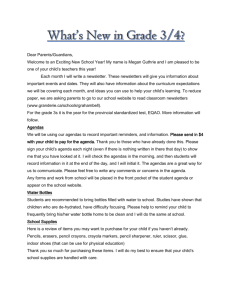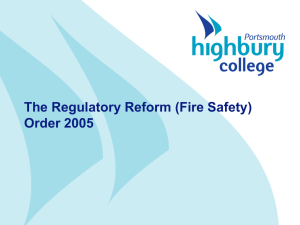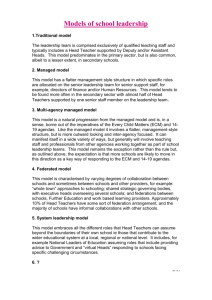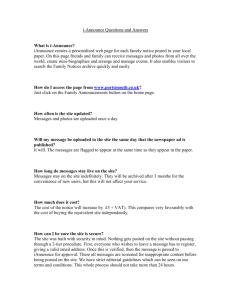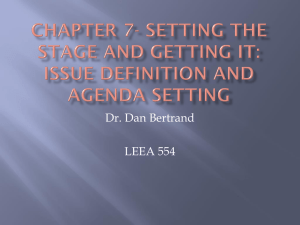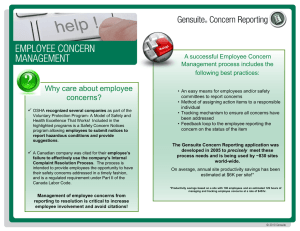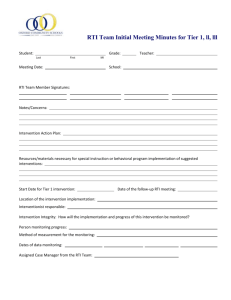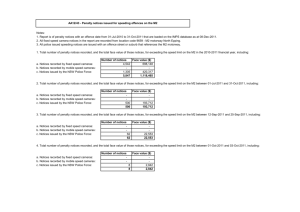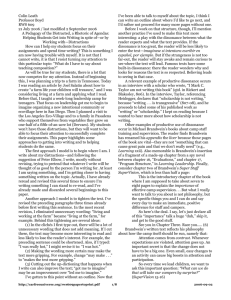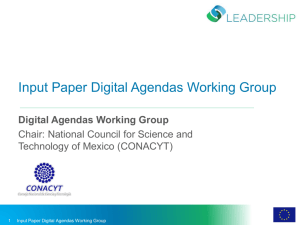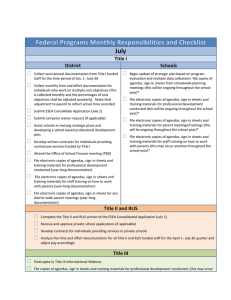District Level - New Mexico State Department of Education
advertisement
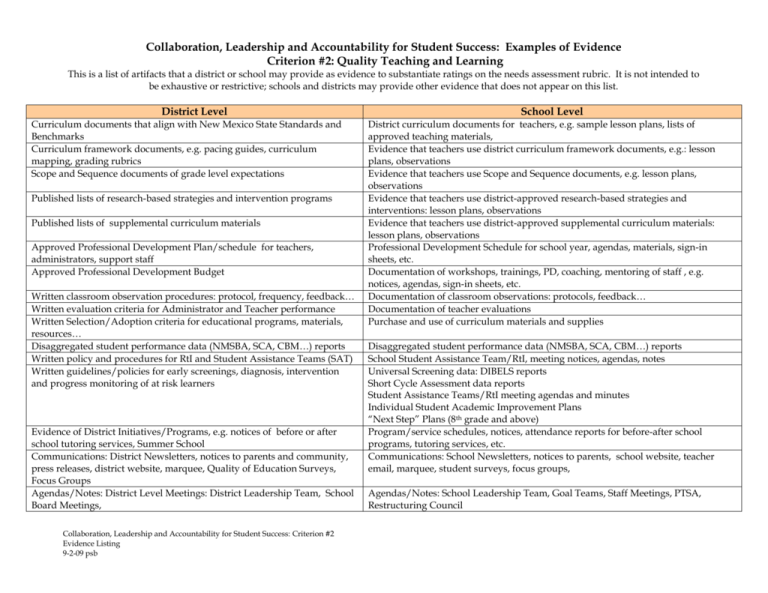
Collaboration, Leadership and Accountability for Student Success: Examples of Evidence Criterion #2: Quality Teaching and Learning This is a list of artifacts that a district or school may provide as evidence to substantiate ratings on the needs assessment rubric. It is not intended to be exhaustive or restrictive; schools and districts may provide other evidence that does not appear on this list. District Level Curriculum documents that align with New Mexico State Standards and Benchmarks Curriculum framework documents, e.g. pacing guides, curriculum mapping, grading rubrics Scope and Sequence documents of grade level expectations Published lists of research-based strategies and intervention programs Published lists of supplemental curriculum materials Approved Professional Development Plan/schedule for teachers, administrators, support staff Approved Professional Development Budget Written classroom observation procedures: protocol, frequency, feedback… Written evaluation criteria for Administrator and Teacher performance Written Selection/Adoption criteria for educational programs, materials, resources… Disaggregated student performance data (NMSBA, SCA, CBM…) reports Written policy and procedures for RtI and Student Assistance Teams (SAT) Written guidelines/policies for early screenings, diagnosis, intervention and progress monitoring of at risk learners Evidence of District Initiatives/Programs, e.g. notices of before or after school tutoring services, Summer School Communications: District Newsletters, notices to parents and community, press releases, district website, marquee, Quality of Education Surveys, Focus Groups Agendas/Notes: District Level Meetings: District Leadership Team, School Board Meetings, Collaboration, Leadership and Accountability for Student Success: Criterion #2 Evidence Listing 9-2-09 psb School Level District curriculum documents for teachers, e.g. sample lesson plans, lists of approved teaching materials, Evidence that teachers use district curriculum framework documents, e.g.: lesson plans, observations Evidence that teachers use Scope and Sequence documents, e.g. lesson plans, observations Evidence that teachers use district-approved research-based strategies and interventions: lesson plans, observations Evidence that teachers use district-approved supplemental curriculum materials: lesson plans, observations Professional Development Schedule for school year, agendas, materials, sign-in sheets, etc. Documentation of workshops, trainings, PD, coaching, mentoring of staff , e.g. notices, agendas, sign-in sheets, etc. Documentation of classroom observations: protocols, feedback… Documentation of teacher evaluations Purchase and use of curriculum materials and supplies Disaggregated student performance data (NMSBA, SCA, CBM…) reports School Student Assistance Team/RtI, meeting notices, agendas, notes Universal Screening data: DIBELS reports Short Cycle Assessment data reports Student Assistance Teams/RtI meeting agendas and minutes Individual Student Academic Improvement Plans “Next Step” Plans (8th grade and above) Program/service schedules, notices, attendance reports for before-after school programs, tutoring services, etc. Communications: School Newsletters, notices to parents, school website, teacher email, marquee, student surveys, focus groups, Agendas/Notes: School Leadership Team, Goal Teams, Staff Meetings, PTSA, Restructuring Council
